#PTSDrecovery
Text
I recently fell back into the Call Of Duty Fandom (with a massive crush on Konig of course) and I have to say (I don't kink shame) but the amount of people that fetishize dubcon/rape/nonconsensual Konig/other members in COD is really fucking gross. I'm actually disgusted. I think I seriously need a few days away from this app as I don't believe I will ever find normal headcannons or fanfiction of some of my favorite characters from the fandom.
As a SA survivor it was very triggering (I do appreciate trigger warnings thoroughly so thank you to those who do post them at the header) but the fact that I scrolled through the Konig tag for an hour and literally every single one was about how he was a loser/rapist that violates Y/N makes it feel like there's bugs crawling under my skin. I am rescheduling an appointment with my therapist ASAP to work on my ptsd and I suggest most of you should probably do the same if you fantasize about a man coming at you and using you non-consensually.
Again, not trying to kink-shame, just really grossed out and needed an outlet to let out my feelings as it has brought back horrible feelings and is painting a horrible picture about my sweet, sweet Kortac Colonel.
#vent#venting#rant#ranting#ptsd#ptsdrecovery#takingabreak#porter gage#ill stick with#fallout#fromnowon#trigger#triggerwarning#mentions
9 notes
·
View notes
Text
instagram
safehalton Today is the day we celebrate all women who have been told they are not worthy, who have fought through abuse and trauma, who have overcome adversities, and through it all they triumphed and learned to love them self. Happy International Women’s Day!
-Love, the Safe Committee
.
.
#internationwomensday #domesticviolence #domesticviolencesurvivor #endvas #halton #vas #safe #girlpower #strength #perseverance #power #smile #happy #standtogether #breathe #emotionalabuse #abuse #ptsd #ptsdrecovery #dreams #wisdom #spiritualwar #cleansing #psychologicaladvise #relationshipadvice #spiritualguidance ##relationshipgoals #tarotreadersofinstagram #healing #energyhealing #psychology #awareness #domesticviolence #domesticviolencesurvivor #survivors #vaw #SAFE #halton #domesticviolenceawareness
#Instagram#internationwomensday#domesticviolence#domesticviolencesurvivor#endvas#halton#vas#safe#girlpower#strength#perseverance#power#smile#happy#standtogether#breathe#emotionalabuse#abuse#ptsd#ptsdrecovery#dreams#wisdom#spiritualwar#cleansing#psychologicaladvise#relationshipadvice#spiritualguidance#relationshipgoals#tarotreadersofinstagram#healing
17 notes
·
View notes
Text

Caring for Those Who Have Experienced Trauma: Tips for Family and Friends
Understanding Trauma: What It Is and How It Affects People
Trauma happens when something bad happens and it's too much for someone to handle. It can have a profound impact on a person's thoughts, feelings, and behaviours. Trauma comes in different types, like acute trauma from one event, or complex trauma from repeated exposure. People who have experienced trauma often have intrusive thoughts, nightmares, and difficulty concentrating. They may also avoid reminders of the trauma and become hypervigilant. Additionally, their mood and behaviour can change, and they may feel irritable. These symptoms can significantly affect a person's daily functioning and quality of life.
The Importance of Listening: How to Be a Supportive Listener for Trauma Survivors
One of the most important ways to support trauma survivors is by being a good listener. Active listening techniques can help create a safe and supportive environment for survivors to share their experiences. This includes giving your full attention, maintaining eye contact, nodding or using other non-verbal cues to show understanding, and asking open-ended questions to encourage further discussion. It is crucial to avoid judgment and criticism when listening to trauma survivors. They may have experienced events that are difficult for others to understand or relate to. Instead of offering advice or opinions, it is important to provide validation and empathy. Letting survivors know that their feelings and experiences are valid can help them feel heard and understood.
Creating a Safe Space: Tips for Making Trauma Survivors Feel Comfortable and Secure
Creating a safe space is essential when supporting trauma survivors. This includes both physical and emotional safety. Physically, it is important to ensure that the environment is free from potential triggers or reminders of the traumatic event. This may involve removing certain objects or adjusting the lighting and temperature to create a calming atmosphere. Emotionally, it is crucial to create a non-judgmental environment where survivors feel comfortable expressing their thoughts and feelings. Respecting boundaries and privacy is also important in creating a safe space. People who have experienced trauma may have their own preferences for personal space and privacy. It is crucial to honour these boundaries.
Dealing with Triggers: How to Help Trauma Survivors Manage Their Triggers
Triggers are stimuli that remind trauma survivors of their traumatic experiences and can elicit intense emotional or physical reactions. Common triggers include certain sounds, smells, sights, or situations that are reminiscent of the traumatic event. It is important to help trauma survivors identify their triggers and develop coping strategies to manage them. Coping strategies for managing triggers can include deep breathing exercises, grounding techniques, engaging in activities that promote relaxation or distraction, and seeking support from trusted individuals. It is important to encourage survivors to communicate their triggers and needs so that appropriate measures can be taken to help them feel safe and supported.
Coping Strategies: Techniques for Helping Trauma Survivors Cope with Their Emotions
Coping strategies are essential for trauma survivors to manage their emotions and navigate the healing process. Self-care techniques, such as engaging in activities that promote relaxation, practising mindfulness or meditation, getting regular exercise, and maintaining a healthy diet can help survivors regulate their emotions and reduce stress. Mindfulness and relaxation techniques, such as deep breathing exercises, progressive muscle relaxation, or guided imagery, can help trauma survivors calm their minds and bodies during times of distress. Seeking professional help, such as therapy or counselling, can also be beneficial in providing trauma survivors with the necessary tools and support to cope with their emotions.
The Power of Validation: Why It's Important to Validate Trauma Survivors' Experiences
Validation is the act of acknowledging and accepting someone's thoughts, feelings, and experiences as valid and real. It is a powerful tool in supporting trauma survivors as it helps them feel heard, understood, and validated. Validating trauma survivors' experiences can help them regain a sense of self-worth and reduce feelings of shame or self-blame. Providing validation involves actively listening to survivors' stories without judgement or criticism. It involves acknowledging their pain and suffering and expressing empathy and understanding. Validating trauma survivors' experiences can help them feel less alone and more supported in their healing journey.
Helping Trauma Survivors Seek Professional Help: How to Encourage Them to Get the Support They Need
Professional help is often necessary for trauma survivors to fully heal and recover from their traumatic experiences. However, many survivors may face barriers to seeking help, such as stigma, fear, or lack of access to resources. It is important to encourage and support trauma survivors in seeking professional help. Emphasising the importance of professional help and providing information about available resources can help survivors understand that seeking help is a sign of strength rather than weakness. Offering to accompany them to appointments or helping them research therapists or support groups can also provide practical support in accessing professional help.
Self-Care for Caregivers: Why It's Important to Take Care of Yourself When Supporting Trauma Survivors
Supporting trauma survivors can be emotionally demanding and challenging. Caregivers may experience secondary trauma or compassion fatigue as a result of their work. Caregivers must prioritise self-care to maintain their well-being and continue providing effective support to trauma survivors. Common challenges for caregivers include feeling overwhelmed, experiencing burnout, and neglecting their own needs. Self-care strategies for caregivers can include setting boundaries, practising self-compassion, seeking support from others, engaging in activities that bring joy or relaxation, and taking regular breaks to rest and recharge.
Understanding Boundaries: How to Respect Trauma Survivors' Boundaries and Needs
Boundaries are essential in supporting trauma survivors as they help create a sense of safety and control. Respecting trauma survivors' boundaries involves understanding and acknowledging their needs and preferences regarding personal space, privacy, and emotional intimacy. Establishing and respecting boundaries can be achieved through open communication and active listening. It is important to ask survivors about their boundaries and preferences and to honour their requests. Respecting boundaries can help trauma survivors feel safe and supported in their healing journey.
Celebrating Progress: Why It's Important to Acknowledge and Celebrate Trauma Survivors' Progress and Achievements
Acknowledging and celebrating the progress and achievements of trauma survivors is an important part of the healing process. It helps survivors recognise their strength, resilience, and growth and reinforces positive changes in their lives. Celebrating progress can involve acknowledging small victories, such as completing a therapy session or trying a new coping strategy. It can also involve recognizing larger milestones, such as reaching a specific goal or overcoming a significant challenge. Celebrating progress can help trauma survivors feel proud of their accomplishments and motivated to continue their healing journey.
Conclusion
Supporting trauma survivors is crucial in helping them heal from their traumatic experiences. To support trauma survivors, we need to listen to them, understand their experiences, and create a safe space. We can also assist them in managing triggers, teaching coping skills, and validating their feelings. Encouraging them to seek professional help and practising self-care as caregivers is important, too. Respecting their boundaries and celebrating their progress can make a positive impact on their lives. Supporting trauma survivors is an ongoing process. Each person's healing journey is unique and important. You can find therapy, support groups, and helplines to get more support and information.
#abuse survivor#ptsdawareness#life coaching#traumarecovery#trauma coach#mental health support#communication#families#friendship#help#be kind#be there#ptsdsupport#ptsdrecovery#ptsdcommunity#trauma recovery#trauma therapy
2 notes
·
View notes
Text
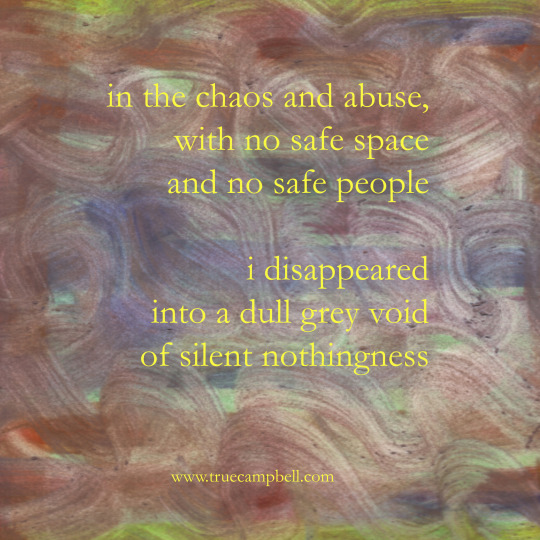
Dissociation.
#selfdiscoveryjourney#selfdiscovery#abandonment#childhoodtrauma#recoverywarrior#recoveryjourney#selflovejourney#mentalillnessrecovery#selfcare#alanon#adultchildren#ptsdrecovery#emdrtherapy#itsokaynottobeokay#selfloveiskey#recoverycommunity#complexptsd#ptsdtherapy#abandoned#cptsdwarrior#mentalhealth
9 notes
·
View notes
Text


no
💖follow my other socials💖
#poetry#writing#poetrycommunity#writingcommunity#poetsoftumblr#writersoftumblr#darkpoetry#sadpoetry#quotes#sadquotes#ptsd#ptsdawareness#sexualassaultawareness#sexualassault#metoo#depression#mentalhealth#mentalhealthawareness#ptsdrecovery#traumasurvivor#survivor#abuse#abuseawareness#abusesurvivor#poem#poems#poetblr
5 notes
·
View notes
Photo
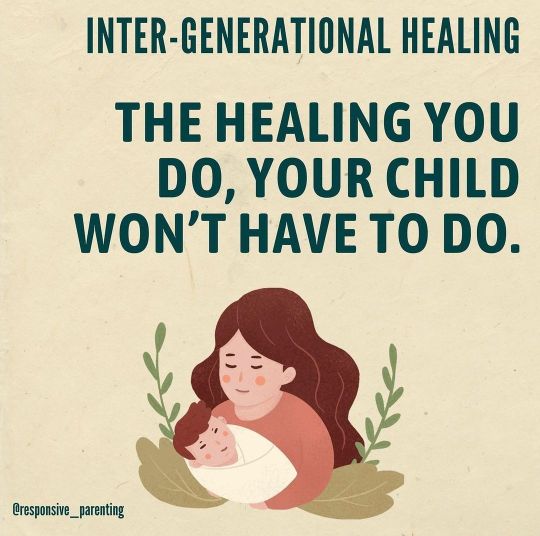
Healing your trauma is important for the life of your children. #Mentalhealth #LangleyCounselling #CounsellingLangley #Gentlecurrentstherapy #TherapistLangley #Langley therapist #Michaeldadson #DrMichaelDadson #Mikedadson #Drmikedadson #DrMichaelDadson #Drdadson #Langleycounsellor #Counsellor #mentalhealthsupport #Couplescounselling #Trauma therapy #TraumaRecovery #PTSDRecovery #PTSD #Trauma #Anxiety #StressManagement #Stress https://www.instagram.com/p/Cj3JDmUJB6b/?igshid=NGJjMDIxMWI=
#mentalhealth#langleycounselling#counsellinglangley#gentlecurrentstherapy#therapistlangley#langley#michaeldadson#drmichaeldadson#mikedadson#drmikedadson#drdadson#langleycounsellor#counsellor#mentalhealthsupport#couplescounselling#trauma#traumarecovery#ptsdrecovery#ptsd#anxiety#stressmanagement#stress
1 note
·
View note
Text
Understanding Mental Illness: 06
Post-Traumatic Stress Disorder (PTSD)
Post-traumatic stress disorder (PTSD) is a mental health condition triggered by experiencing or witnessing a traumatic event. It can affect people of all ages and often involves reliving the traumatic event through flashbacks or nightmares.

Symptoms:
Intrusive Memories: Recurrent, unwanted distressing memories of the traumatic event, flashbacks, or nightmares.
Avoidance: Avoiding places, activities, or people that remind them of the traumatic event.
Negative Changes in Thinking and Mood: Negative thoughts about oneself or others, feelings of hopelessness, memory problems, and feeling detached from family and friends.
Changes in Physical and Emotional Reactions: Being easily startled, always being on guard for danger, self-destructive behavior, irritability, angry outbursts, and trouble sleeping or concentrating.
Connecting with Someone with PTSD:
Be Patient: Understand that their healing process may take time, and avoid rushing them.
Provide a Safe Space: Ensure they feel safe and secure when they’re with you.
Encourage Open Communication: Let them share their experiences at their own pace.
Avoid Triggers: Be mindful of their triggers and avoid exposing them to these without their consent.
Encourage Professional Help: Support them in seeking therapy or counseling if needed.
#PTSD#PTSDRecovery#PTSDAwareness#PTSDSupport#TraumaRecovery#TraumaSurvivor#BreakTheStigma#MentalHealthMatters#EndTheStigma#YouAreNotAlone#MentalHealthAwareness#HealingFromTrauma#TraumaAwareness#SupportMentalHealth#PTSDCommunity
0 notes
Text
0 notes
Text
youtube
This video explains how acupuncture can rewire the brain and help the brain produce more relaxing hormones; such as serotonin, endorphin, and GABA, which can help with PTSD, depression, insomnia and panic attack. Acupuncture also lowers stress hormones, such as adrenaline and cortisol which helps reduce anxiety and balance the immune system.
Watch more videos - https://youtu.be/czofnh0JNZs
#ptsd#ptsdawareness#ptsdrecovery#acupunctureforptsd#acupuncture#stress#serotonine#endorphin#anxiety#sleep#Youtube
0 notes
Text
Mishandled Justice; Putting the Pieces Back Together After Trauma
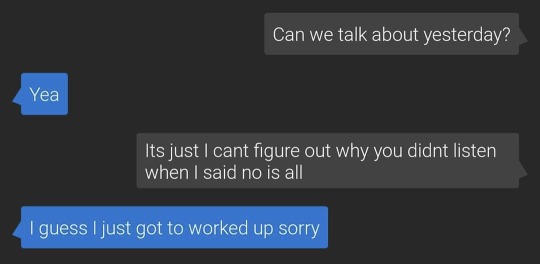
/First Entry
seemingly endless doom scrolling watching videos online I occasionally stumble upon the side of the world wide web where there's a kind side. Some genuine folk just doin' their best. I have been scared and angry and alone so long I really think I forgot there are kind souls out there, Dearest Reader, I hope you are one of those good people 💙
For a long time I thought I was okay being alone. Lately there's been a overwhelming void and between you and me, I think may be humanity I've been missin'. I know it's more trendy to put this on TicTok, dang I tried however putting myself on camera is uncomfortable in a way I'm not sure yet how to describe, all the same I need to start letting some things out. I would love to be brave enough to share my life with the world like the fabulous content creators that have kept me company over the years but every time I try, I find an excuse not to; my house isn't clean enough. My forehead is too big, my body is too big. I wouldn't be funny enough, I wouldn't be interesting enough. I wouldn't be enough. Would be too much. Heck I even thought I wasn't rich enough to be on Tic Tok. I don't have a nice hair cut or fancy clothes to do one of those 'fit checks' they're dong and the only time my phone rings is a bill collector, what business did I have of sharing my dirty laundry online being in the state I've been in. It's that thinking that has kept me stuck in life.
I don't know who I am anymore. At the risk of sounding too dramatic, it is as if I have awoken from a living, psychological coma unsure of myself or my surroundings. So while I learn who I am and how to get comfortable in front of a camera my relaunch into the realm of social media will start by blogging.
Do I feel like know what I'm doing? Nope! This will be a learning experience with no determined destination or set conclusion. It will be chaotic. Y'all are invited to come along. One joy of writing and throwing it out there, no one has to read it if they don't want to. Unlike a real life conversation, I won't be distracted by your face worried I have said the wrong thing, or said to much, offended or bored you. I am a modern hermit living with complex post traumatic stress disorder and have been experiencing noticeable symptoms akin to ADHD. I am not sure how many times I have tried to 'start over' in life and failed, I've lost count. I have wanted and tried to change but doing it alone isn't working, so here we are now.
I’ve never told my story publicly. Not really. As I attempted put my life back together over and over and take up space in the world I would feel a bit like a fraud. As if it's this big shameful secret I must hide when in reality it's been gagging me getting in the way of speaking and success. I know I could have a beautiful life if I could just get out of my own way, out of my own head, and out of this dang house.
I have to put all the puzzle pieces together, finally get it all out so then maybe I can find peace and put it all behind me. I had posted some details about the events on my Facebook over the years as it all played out. I would share a summary to family and friends and it made a few news headlines, yet so many factors stopped me from sharing the raw truth of it all.
The weight of shame and not wanting to embarrass or hurt my family, I left out so much of what had happened and what I was feeling. When I would try to share how bad things have gotten, the reactions at just a small portion of the whole truth were bad enough I was ashamed of putting it all on tbe table. I had told having my life public would negatively affect my chances of getting a good job, chastised it would ruin my reputation if I cussed or used words like 'rape' or 'sexual assault' online. I still tried, to find strangers commenting on the news stories about my body, my character they knew nothing of, gossip that the evidence was fraudulent and I just wanted attention. After time went by and I had heard the “get over it’s” and the “time to move on’s” I didn't think my story was worthy of telling, to those more than an arms length away I would be fine and move on. Now still, lack of confidence in myself, low self esteem and fear has kept me from living and telling my story in its entirety.
While the fear of being prosecuted for violating a publication ban on my own name had not stopped me from posting on my own Facebook page, it had effectively silenced me from going public. The risk of a $5,000 fine or up to 2 years in custody for telling my story had removed my voice and a piece of healing I didn't know how very badly I needed.
“There is no greater agony than bearing an untold story inside you.” - Maya Angelou
I have never really known how to have close friends well. I sometimes wish I had a tribe to be comfortable with. Growing up I was that kid that would secretly cry in the bathrooms when at a friends house. I never understood why I didn't feel like I quite fit in. I’d be apart of a small group, always an introvert, I think I would have liked to have been the emotionally regulated, social sort as an adult where I could have gotten the whole story out already. Perhaps around a bonfire, screaming at the moon, blending tears from sadness and laughing. The last time I was in a social setting that wasn't family was in 2019. It's been lonely. Even years before then I had hid away. In late 2015 I left an abusive relationship and became housebound. Fearful to even venture to my front yard, leaving the bedroom was a daily challenge. Slowly I started to engage in social media, supplementing human connection with strangers on Facebook, where this story will officially begin.
⚠️ Trigger Warning ⚠️
This blog will cover topics of intimate partner violence, sexual assault, legal misconduct, mental illness and contain corse language. I will make an attempt to censor myself throughout this therapeutic process. Reader’s discretion is strongly advised.
📍Disclaimer
Some names used will be changed for the purposes here. However, all facts of the trial discussed within this saga are public record, and RCMP interactions from the trial and complaints process are documented for verification. All other details are from my own lived experiences, hours of audio recordings, news and magazine articles, emails, and journals.
Now I know a little bit about a lot, but only a lot about a little bit. I will speak about my own experiences as I have lived them and the things I have learned along the way, but I am not an expert in any topic included below. I am such a mess that I hesitate to even call myself an expert in my own life, yet vow to hold to the truth at every step.
Statistic I’d like to share
1 in 3 women in Canada will be sexually assaulted with sexual assault being more common than robbery – Statistics Canada
_____________
There was a blur after I was assaulted when I heard the words “wait here, someone will help you” and part of me has been locked in a psychological waiting room ever since. This is my raw and vulnerable exit speech from that place.Why now?Publication ban laws in Canada prevented me from telling the story how I needed to tell it or attributing my own name to the events that transpired. The journalist who first covered the story, Lindsay Jones, called me ‘Nicole’ and as the trial was ongoing, I was prohibited from speaking about the case in full. I was not aware nor informed a publication ban would be essentially automatically applied restricting my choice to share my story. A publication ban did not prevent the media from using the accused’s full name, personal information and details of the trial, yet the punishment I could face by putting my name to my experiences, or sharing court documents was possible fines of $5,000 and/or up to 2 years in custody. At times I pushed the line of this ban as if daring the courts to charge me so maybe someone with authority would hear my case. I understand and accept by sharing my life I am opening myself up to trolls and keyboard warriors who may believe to know more about my own life than me and will say cruel and hurtful things. I have been threatened, insulated and received messages from other men they would rape me too if they had the chance. Our society is not always kind, this is a fear I shall overcome. This is MY journey to healing. To judge how someone processes trauma or victim blaming says more about their character than anyone else’s. The longer I am alone with the shame, guilt the more I hurt myself and my family. I need to hold space for myself now. Telling my story is how I choose to do that. Please remember when you comment with hatred or cruelty other victims will see it and may not feel safe sharing their own stories, and that’s a gawddamn shame. The story must be whatever length it needs to be to pour it out of my body. It will be long and parts long-winded. I write this for myself as a step in my healing process, you are invited to come along.
In the news they called me ‘Nicole’, that is not my name, but this is my story.
*deep breath*
#ToBeContinued
#MyStory#LifeWithCPTSD#LifeAfterTrauma#HealingThroughWords#LongReads#PTSDRecovery#MentaIllness#Canada#TrueCrime#ToBeContinued#SexualAssault#MeToo#NovaScotia#Brainfog#CrimeSleuths
1 note
·
View note
Text

Global Wars & Mental Health- Coming Soon
Global wars- It’s impact on Mental health
Subscribe to our YouTube channel:
https://www.youtube.com/@DoctorsCouch-sd6ck
#GlobalWars#mentalhealth#mentalhealthmatters#ptsd#ptsdawareness#PTSDTreatment#PTSDRecovery#ptsdhealing#PTSDSupport
0 notes
Text
Trigger Warning: Childhood SA
In my previous posts, I briefly touched on my battle with PTSD, yet I never delved into the specifics behind it. I feel compelled to share my story with the hope of offering solace to others who may be silently suffering from similar experiences. I want you to understand you are not alone in your struggles. I want you to know it's never too late to break the silence and confront the past. And if people are uncomfortable with YOUR TRUTH, that's on them.
It was 8 years ago (yesterday) that I faced my abuser in a courtroom. 8 whole years since my truth was spoken, and since he finally faced consequences for his disgusting actions. 8 years I have spent healing from the damage he caused me.
While ideally, family members and trusted adults should be the guardians of our well-being, regrettably, this is not always the reality. More often than not, when a child is $e><ually a8u$ed, it's by someone they know. Someone they are supposed to be able to trust.
I don’t want to share the details of what he did to me and others, but I will tell you this much. My "grandfather" was a monster who preyed on his own grandchildren and violated childhood innocence. He abused his authority and had a fucking sick obsession to harm children in unspeakable ways.
The trauma I suffered as a child scarred me deeply. To cope with the pain, I turned to harmful habits like overeating, hurting myself and being $e><ually reckless. I was diagnosed with PTSD, underwent a series of trials with various medications, grappled with nightmares that jolted me awake and triggering debilitating panic attacks. In the midst of it all, I found myself diagnosed with OCD, and the reality of attempting to end my life on multiple occasions. Depression sucks.
Now here I am, 8 years later. Despite the countless moments when surrender seemed tempting, I persevered. Yet, the imprints of mental and physical wounds will never fade, destined to accompany me throughout my lifetime.
The battle with weight, a lifelong yo-yoing struggle, endures despite resorting to gastric bypass surgery, thanks to years of abusing food. My arms, hands, and legs are covered in scars from years of an addiction to c|_|tting. Scars that I have to see every single day; scars that I will one day have to explain to my daughter. I have been with more people than I care to admit, seeking validation from anyone who showed me a hint of affection. Some of them abused my trust and hurt me deeply, but that is a tale for another time. I am grateful that I survived those encounters without catching a serious illness or losing my life.
My path to healing is indebted to my husband, as his unwavering support played a huge role in breaking the cycle I endured for so many years. Upon sharing my struggles with him when we met, he motivated me to pursue legal action. He urged me to seek mental health services, providing a helpful presence as I navigated these challenges. Whether consoling me through tearful nights or ensuring I took my medication, he selflessly cared for me during moments when self-care felt unattainable.
All of this to say, In Ontario, there is no statute of limitations for SA, and it's never too late to speak your truth. If pursuing legal action is not the path you want to take, consider it a duty to your future self to embark on a journey of mental and physical healing. Don't give up on yourself because of something someone else did to you. Do not allow your darkest moments to become victories for those who have wronged you.
You are not alone. There are better days ahead.
#blogger#millennials#canada#sudbury#ontario#canadian#borninthe80s#adhd#ptsd#ptsdrecovery#ocd#actuallyocd#ocdrecovery#bingeeating#bingeeatingdisorder#eatingdisorder#edawareness#selfharm#selfharmawareness#mentalhealth#mentalhealthrecovery#mentalhealthawareness
0 notes
Text
instagram
safehalton Repost from @divineadoratrice using @RepostRegramApp - Post traumatic stress disorder (PTSD) is defined as a syndrome characterized by physiological arousal associated with recurrent memories and dreams arising from traumatic events or a single event that occurred months or years earlier... -🗣🗣🗣 Some of us have traumatic, abusive, events from childhood coupled with bad relationships that we are STILL trying to heal from. - Yes, the dreams are spiritual... Also, YOU are TRAUMATIZED!!!! • Healing starts with acceptance. 🙏🏽
-
🔑Just because you weren’t in IRAQ doesn’t mean you didn’t go to war... 🔑Understand this and begin the healing process.
#emotionalabuse #abuse #ptsd #ptsdrecovery #dreams #wisdom #spiritualwar #cleansing #psychologicaladvise #relationshipadvice #spiritualguidance #blackpsychics #relationshipgoals #tarotreadersofinstagram #bruja #brujeria #witchesofcolor #atlpsychics #healing #energyhealing #psychology #awareness #domesticviolence #domesticviolencesurvivor #survivors #vaw #SAFE #halton #domesticviolenceawareness
#Instagram#emotionalabuse#abuse#ptsd#ptsdrecovery#dreams#wisdom#spiritualwar#cleansing#psychologicaladvise#relationshipadvice#spiritualguidance#blackpsychics#relationshipgoals#tarotreadersofinstagram#bruja#brujeria#witchesofcolor#atlpsychics#healing#energyhealing#psychology#awareness#domesticviolence#domesticviolencesurvivor#survivors#vaw#SAFE#halton#domesticviolenceawareness
6 notes
·
View notes
Text

Trauma can have profound effects on both physical and mental health. Experiencing trauma can lead to physical issues such as ongoing pain, headaches, digestive problems, and a weakened immune system.
When the body's stress response system is dysregulated, it can cause an increase in heart rate, blood pressure, and the release of stress hormones.
Mentally, trauma can result in symptoms such as anxiety, depression, flashbacks, and nightmares. It can also affect cognition, memory, and concentration. Individuals may experience changes in mood, self-esteem, and interpersonal relationships.
The effects of trauma on both physical and mental health highlight the importance of comprehensive care and support for individuals who have experienced trauma.
#mental health#ptsdcommunity#traumarecovery#physical health#cognitive functions#ptsdawareness#did you know#therapy#selfcare#ptsdrecovery#trauma coach#personal
1 note
·
View note
Text
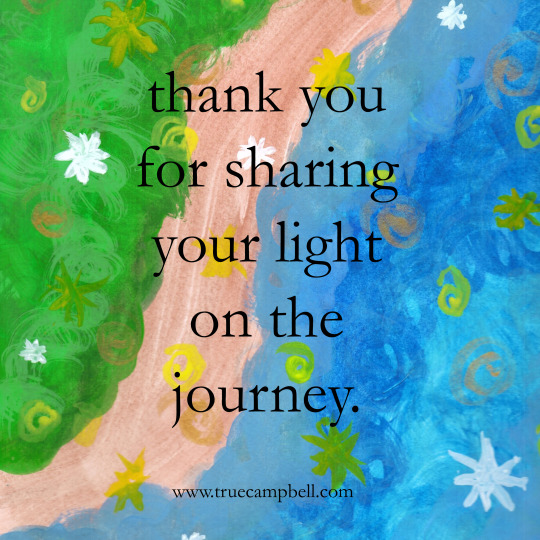
To the thousands of people I've sat in 12-step groups with, to the people I was in group therapy with, to the sisters and brothers of my heart, to the online posters who share, to every person I've encountered on this healing journey. Thank you
#adultchildren#adult children of alcoholics#alanon#alcoholics anonymous#emdr#ptsdrecovery#selfcare#recovery#mentalhealth#mentalillness#thereishope#depressionsupport#recoverywarrior#recoveryjourney#soberlife#ptsdsurvivor#ptsdtherapy#youareenough#selflover#childabuse
4 notes
·
View notes
Text
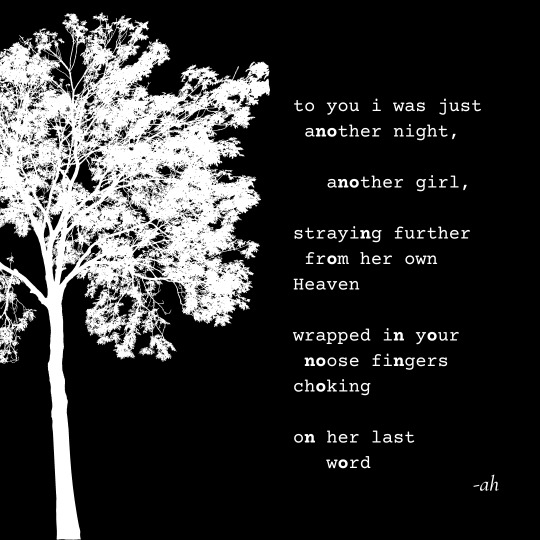
excerpt from no (wip)
💖follow my other socials💖
#poetry#writing#poetrycommunity#writingcommunity#poetsoftumblr#writersoftumblr#darkpoetry#sadpoetry#quotes#sadquotes#ptsd#ptsdawareness#sexualassaultawareness#sexualassault#metoo#depression#mentalhealth#mentalhealthawareness#ptsdrecovery#traumasurvivor#survivor#abuse#abuseawareness#abusesurvivor#poem#poems#poetblr
3 notes
·
View notes